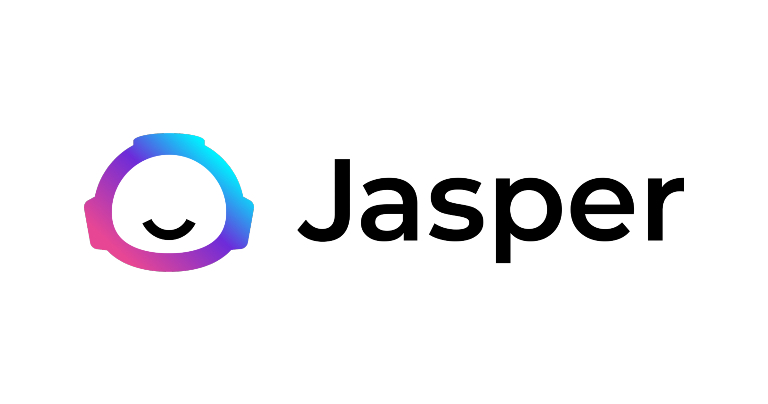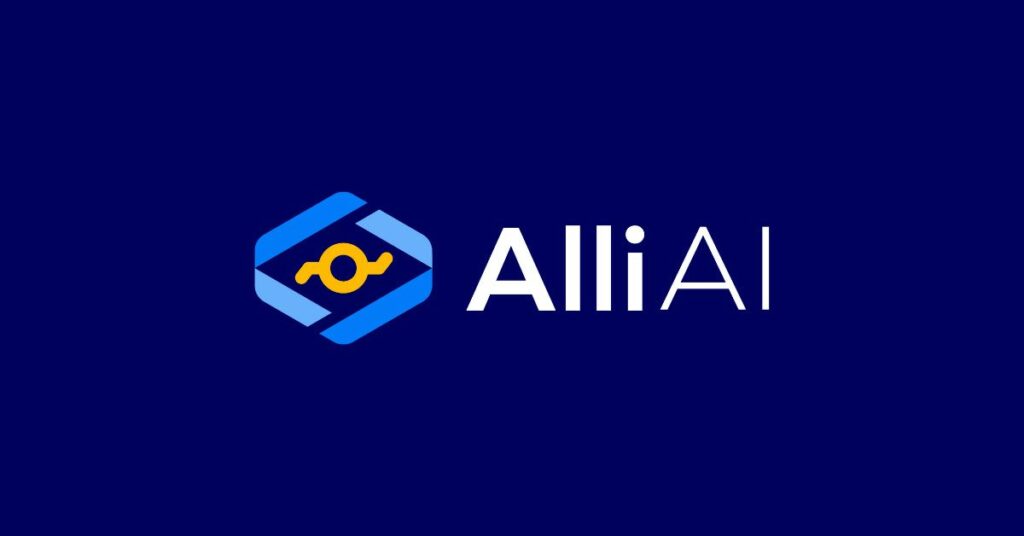In an increasingly crowded marketplace, more and more businesses are turning to artificial intelligence (AI) tools to boost their marketing efforts.
AI can help to drive sales, improve customer journey, automate repetitive tasks and facilitate fraud detection and prevention – an extra spot of reassurance for your customers.
Here, we’ll be explaining what to look for in AI marketing tools and taking a peek at what’s on the market right now.
What AI marketing tools are out there?
You won’t find an all-rounder product that has AI functionality for every part of your marketing plan. Rather, they’ll focus on key areas such as your SEO, content or analytics.
Harvey Morton, founder of Harvey Morton Digital, explains what AI tools you could utilise to better your business.
Search Engine Optimisation (SEO) tools
AI-powered SEO tools assist marketers in optimising their websites and content for search engines. These tools offer features such as keyword research, content optimisation and competitor analysis to improve rankings and organic traffic.
Content strategy platforms
These are AI marketing tools to automate content creation and optimisation. They generate high-quality, SEO-friendly content tailored to specific keywords and niches, saving time and ensuring content performs well on search engines.
Social media marketing tools
AI tools for social media marketing aid in audience segmentation, content scheduling and sentiment analysis. Marketers can create highly targeted and engaging social media campaigns that resonate with their audiences.
Google Ads optimisation software
AI-driven tools optimise Google Ads campaigns by automating bidding strategies, analysing ad performance and refining targeting parameters. This maximises the return on investment for paid advertising efforts.
Email marketing automation solutions
AI-powered email marketing tools segment audiences, optimise send times and personalise email content. Marketers can create more effective email campaigns and increase engagement with subscribers.
Predictive analytics platforms
These tools utilise AI algorithms to analyse historical data and predict future trends and customer behaviours. Marketers can make data-driven decisions for their digital marketing strategies, improving overall effectiveness.
Chatbots and virtual assistants
AI chatbots and virtual assistants enhance customer engagement by providing 24/7 support, answering queries, and offering product recommendations. They improve user experiences and boost customer satisfaction.
What should I know before signing up with an AI platform?
AI marketing tools use machine learning algorithms to make tasks such as content writing easier. They analyse customer data from places where customers dwell such as social media, email and engagement with your customers. This in turn gives interesting insights into customer behaviour and trends.
On the plus side, Morton says that tools like these can boost output at a lower cost and increase customer engagement while giving you accurate insights to drive your marketing plan and reach your goals.
Data from Sitecore tells us that the top three benefits of using AI for marketing are:
- Being able to do faster market research on prospects and customers (70 per cent)
- Create and scale content faster (65 per cent)
- Inspire future campaigns and ideas (63 per cent)
However, there are downsides to these tools. They must be used responsibly, especially when handling sensitive information. Morton points out that small businesses must ensure that they have proper data protection measures in place when using AI marketing tools. “Respecting customer privacy and complying with data protection regulations is crucial for maintaining trust and loyalty,” he added.
Content is also a sticky subject here. Left entirely to AI’s devices, content can come across as cold, bland and clearly not written by a human. “As a digital marketing consultant, I’ve been aware of a couple of instances of clients using AI for social media content and copy, and the output is often not very good. It’s easy to spot when somebody is using AI for content generation and it’s not genuine,” said Morton.
To combat this, you need to teach the AI your tone of voice, but more importantly, ask a human to have a glance over any copy to ensure it doesn’t read like robot drivel. Morton recommends having a person responsible for marketing output and to consider working with a freelancer for £250-£500 a month.
Simon Bacher, founder of the Ling app, also warns of the potential complexity, cost considerations and the risk of over-reliance on technology when using AI platforms.
So, is it time for you to adopt an AI marketing platform? Peter Wood, entrepreneur and chief strategy officer at Spectrum Search, told Small Business that when considering AI marketing tools for businesses, especially small ones, it’s paramount to focus on practicality and scalability. “As someone deeply entrenched in the tech industry and AI innovation, I’ve observed that small businesses often grapple with the allure of cutting-edge tools that promise grand outcomes but lack practical applicability in their specific contexts.”
He recommends starting with AI tools that enhance customer interaction and engagement, pointing out that tools that provide insights into customer behaviour, predict trends and automate responses can be particularly beneficial. That being said, tools must have a proven track record of delivering results for similar-sized companies – this could be in the form of case studies or testimonials, for example. If they’re available, consider starting with a trial period to get an idea of the tool’s effectiveness for your business’ needs.
“Innovation doesn’t necessarily mean adopting the most advanced technology available; it often means utilising the right technology effectively,” said Wood. “For small businesses, this could mean choosing AI tools that integrate seamlessly with their existing systems, are user-friendly, and/or offer tangible benefits in terms of time and cost savings, as well as improved customer engagement.”
AI marketing tools
We’ve gathered a selection of AI marketing tools that serve various functions, detailing what they’re used for, along with features and cost.
Jasper.ai

What is it for? Writing commercial copy
Features:
- AI everywhere with browser extension
- AI Google Docs integration
- Output content in your brand’s tone of voice
- Different dashboard views
Cost
Creator: $39 (£31) per month
Teams: $99 (£78) per month
Business: Bespoke
ManyChat

What is it for? Reaching customers on social media
Features:
- Identify interested leads and reengaging without running retargeting ad campaigns
- Auto respond to messages
- AI assistant and plug and play templates to build automations
- Customised marketing chat campaign
Cost
Free: £0
Pro: $15 (£12) per month
Premium: Bespoke
AlliAI

What is it for? SEO
Features:
- Bulk OnPage optimisation
- Schema mark-up
- Interlinks
- Live editor
Cost
Consultant: $299 (£236) per month
Agency: $599 (£470) per month
Enterprise: $1,119 (£885) per month
Reply

What is it for? Sales
Features:
- B2B contact and customer base
- Build prospect lists
- AI-backed multichannel systems
- Analyse outreach results
- A/B testing
Cost
Free: $0
Starter: $60 (£47) per user, per month
Professional: $90 (£71) per user, per month
Custom: Bespoke
Influencity

What is it for? Influencer marketing
Features:
- Find and analyse influencers
- Curate lists and manage relationships with influencer database
- Manage campaigns
- Access fast and unbiased statistics
Cost
Custom: Bespoke
Basic: $134 (£106) per month
Professional: $278 (£220) per month
Business: $558 (£441) per month
Tableau

https://tableau.com/en-gb/solutions/ai-analytics
What is it for? Analytics and data visualisation
Features:
- Augmented analytics
- Forecasting
- Predictive modelling functions
- R and Python integrations
Cost
Tableau Viewer: £12 per user per month
Tableau Explorer: £34 per user per month
Tableau Creator: £60 per user per month
Rytr

What is it for? Writing emails
Features:
- Blog ideas and writing
- Business idea pitches
- Create calls to action
- Write social media ads
- Keyword extractor
Cost
Free plan: £0
Saver plan: $9 (£7) per month
Unlimited plan: $29 (£23) per month
Looka

What is it for? Logo design
Features:
- Logo maker
- 300+ branded templates
- All accessible in one dashboard
Cost
From $20 (one-off) for a basic logo package
Brand kit subscription from $96 (£76) per year
Writesonic

What is it for? Content creation and optimisation
Features:
- AI article writer
- Paraphrasing tool
- Text summariser
- Story generator
- Landing page generator
Cost
Free: $0
Small Team: $13 (£10) per month
Freelancer: $16 (£12.50) per month
Which AI marketing tool is right for my business?
Unfortunately, only you can know that. Take stock of what your business needs and how tools like the ones above can slot into your existing operations. Good luck!
Read more
Benefits of chatbots for your business – Chatbots can make customer service more efficient, cost-effective and achieve better customer satisfaction
7 best email marketing software for UK businesses – Factors to consider include the number of recipients you need to mail out to, design customisation to match the brand, integrations, data migration and ease of use
How to write a marketing plan – This guide offers practical advice on developing and writing a marketing plan using simple English





